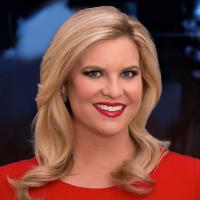What the New Normal Means for People of Faith
WASHINGTON -- Now that the Supreme Court has changed the definition of marriage, many Christians are trying to figure out what that means for them.
Business is back to normal outside the Supreme Court building, but there's no denying that the votes of five justices dramatically changed the nation.
"And that has profound impacts. It changes what kids are taught in the school, changes the way religious organizations are treated," Brian Brown, with the National Organization for Marriage, said.
Over the weekend gay pride parades and celebrations from California to Chicago, and even Alaska, made news.
The court's decision doesn't take effect for several weeks, but even in states that didn't allow gay marriage, like Georgia, same-sex couples were allowed to wed.
The Supreme Courts ruling has sparked controversy ranging from religious freedom to how parents should talk to children. CBN's Heather Sells spoke with Dr. Russell Moore, with the Southern Baptist Conventions Ethics and Religious Liberty Commission, on these topics and more fallout on the historic ruling.
"I think everyone has the right to be happy and we were raised with the mentality that you should do what makes you happy," Christi Justis, a college student at Virginia Commonwealth University, said.
However, many Americans fear that sentiment shared by many millennials won't apply to people who have religious objections to the government's new definition of marriage.
There's no question that the next fight is religious liberty, as some fear the court's ruling on marriage will embolden those who seek to punish Christians who wish to live, work, and raise their families in accordance with their faith.
"Religious liberty is not just the freedom to worship in your chapel; it's the freedom to live out your faith in everyday life, Monday through Sunday, in the workplace, in the public square, in the marketplace, at your home, at your school, at your charity," Ryan Anderson, with the Heritage Foundation, explained.
Many fear the court's ruling opens the door for a number of unconventional marriages to eventually win favor by the government.
"If California were to redefine marriage to include polygamy or polyamory, could a Texan go to California, have a group marriage, and then move back to Texas and say 'the constitution requires you to recognize this,'" Anderson asked.
The what-if's and the reality of gay marriage in all 50 states will be hot on the campaign trail this summer, and the divisions are miles apart.
While all of the Democratic candidates celebrated the court's ruling, all of the Republican candidates expressed some level of disappointment.
"I think the left is now going to go after our First Amendment rights," Louisiana Gov. Bobby Jindal warned Sunday on "Meet the Press."
"I think it is wrong for the federal government to force Christian individuals, businesses, pastors, churches to participate in wedding ceremonies that violate our sincerely held religious beliefs," Jindal continued.
"We have to stand up and fight for religious liberty," he said.
One the same program, Sen. Lindsey Graham, R-S.C., said, "If you have a church, a mosque, or a synagogue and you're following your faith and you refuse to perform a same-sex marriage because it's outside the tenets of your faith, in my presidency, you will not lose your tax exempt status."
"Are we gonna trade one level of what's called discrimination for a new level of discrimination against people of faith," former Arkansas Gov. Mike Huckabee asked on "This Week."
"The problem here is, that the government is going to put people of faith in an untenable situation where they're forced to choose between obeying God and obeying the government," Mark Trammell, with the Liberty Center for Law and Policy, warned.




